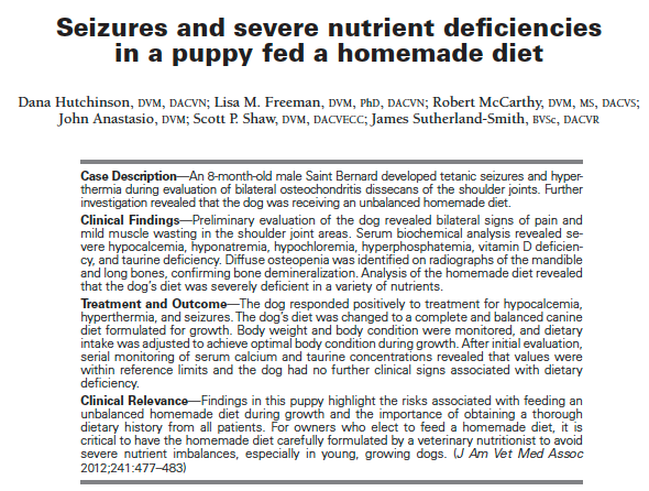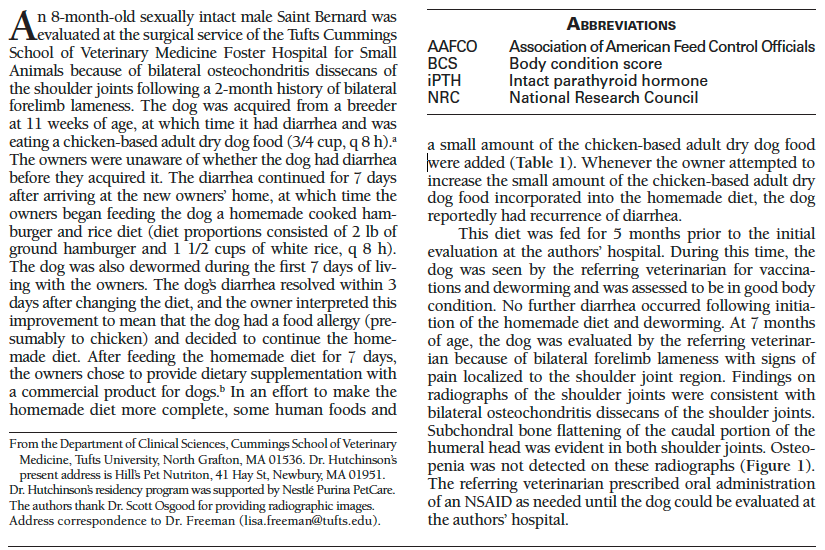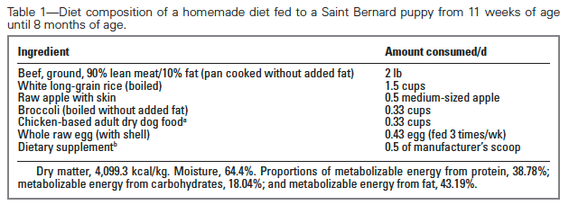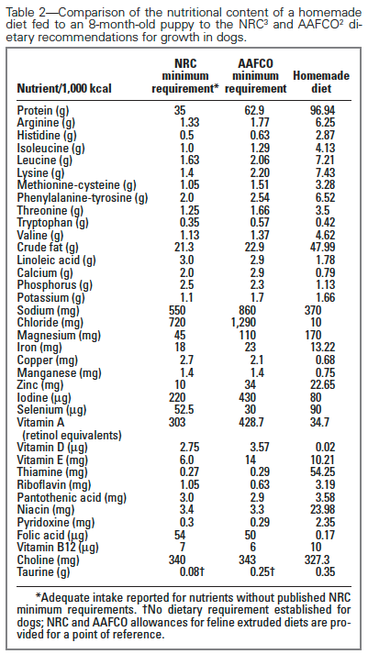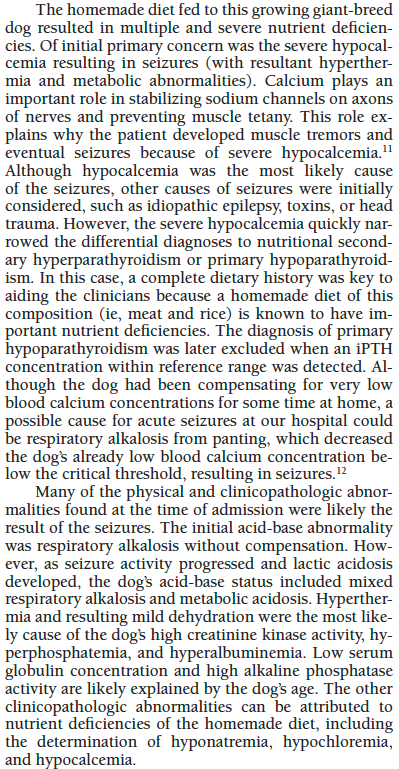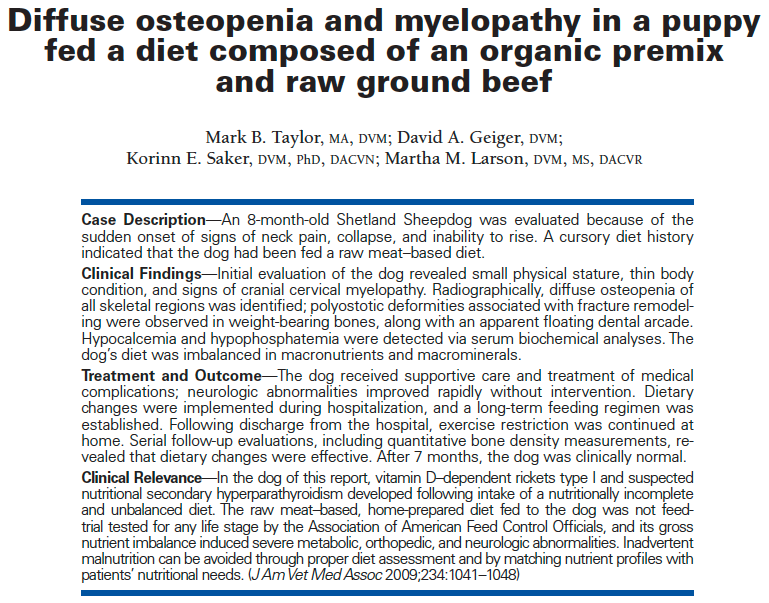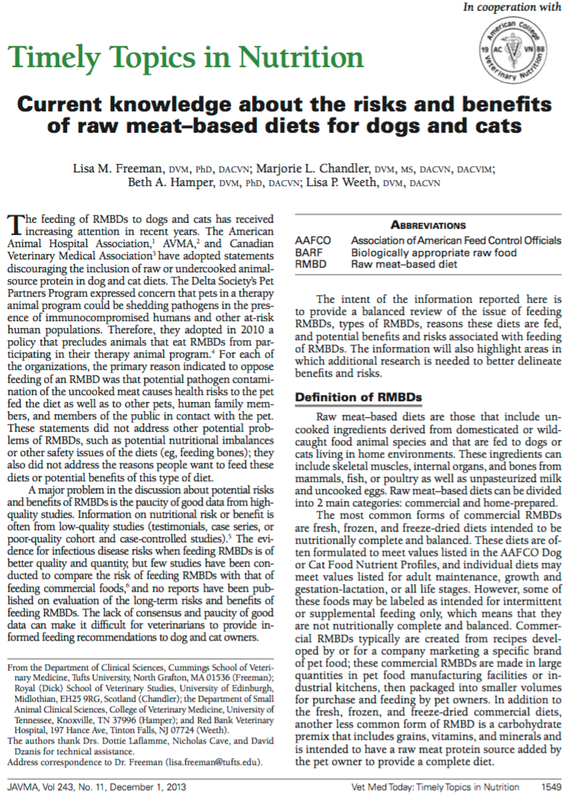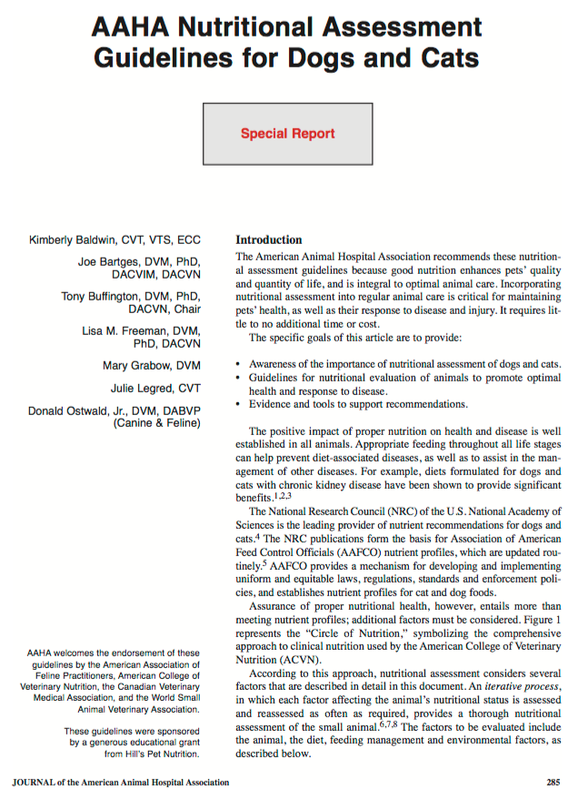(NOTE 1: For those that just read the first sentence or two before typing a rebuttal, this post has nothing to do with cancer.)
(NOTE 2: There is nothing here that endorses a commercial diet, so no need to write a rebuttal about that either.)
(NOTE 3: If the comment you're going to write starts with "I haven't read it yet, but...", just stop. Read it first. It doesn't say what you think it does.)
(NOTE 4: Before you fire off a rebuttal about anything else, download the paper towards the bottom with the bannerhead "Timely Topics in Nutrition", which addresses many of the comments that are likely to come up in responses. Please.)
(NOTE 5: The title is new and improved. More about this in a future post...)
I got a flood of interesting feedback from my post asking if rates of cancer are higher in dogs than other mammals. Mostly, people had objections of one sort or another about the data - no control for how often the animals are screened, no information about whether the dogs were dying young or old, no consideration of wild vs domestic animals, and so on. The other category of responses was explanations for the data, and here there was clearly a theme: dogs have higher rates of cancer because of a) diet, b) vaccines, and/or c) environmental toxins. I will do a separate blog post about these topics because they are worth addressing, as well as some background on the process of science and why it is useful to toss together a bunch of data with obvious issues in the first place.
But this morning something popped up on my Facebook feed that prompted me to take the time to address one aspect of the diet issue. It was a photo of a 3 month old puppy of a good sized breed, cute as a button, and proudly introduced as "raw fed". Now, I suspect that those that suggested diet as a cause of cancer in dogs believe that commercial, processed foods are the problem and that a raw diet is better for dogs. I have never seen any studies that document commercial dog food as a risk factor for cancer, except perhaps as incidental to obesity, but that doesn't rule it out. On the other hand, I have seen many studies that looked at other risk factors associated with raw diets, and most noted that bacterial contamination of raw meat is common. I'm sure you all know that.
But the raw fed puppy highlights a very serious problem that I suspect many don't consider when they lovingly whip up a batch of their home-formulated diet, and that is the difficulty in providing a diet that is nutritionally complete, especially for a puppy. Fortunately, there is published information about the problems this can cause. Here are two examples.
This Sheltie was fed a commercial dried food, Sojos European Style dog and cat food mix, to which the owner added raw hamburger.
A good place to start are these papers about risks and benefits of raw diets, and the nutritional guidelines for dogs and cats.
To learn more about the genetics of dogs, check out
ICB's online courses
***************************************
Visit our Facebook Groups
ICB Institute of Canine Biology
...the latest canine news and research
ICB Breeding for the Future
...the science of animal breeding
